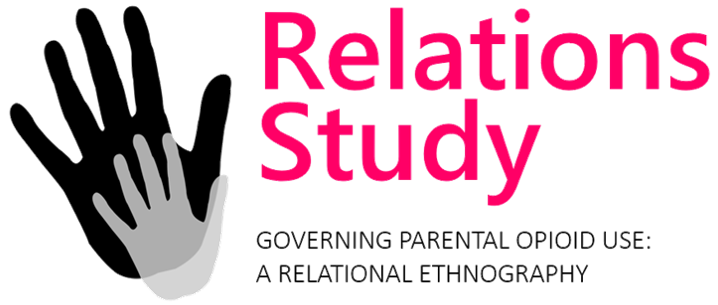A space to discuss and reflect on drug use and family life.
CAHMA and The Connection – Jude Byrne Women’s Group – A group for women with AOD and Care and Protection involvement.
Presentation by Monica Ruffy
Seminar recording: 1 December 2022
The Relations Study is delighted to host Monica Ruffy for a seminar which showcases and reflects on her work with a peer-based support group for mothers who use drugs, based in Canberra, Australia.
The presentation is based on Monica’s work within a unique peer-based drug and alcohol service and the Jude Byrne women’s support group that she facilitates and designed for mothers with drug dependence and child protection involvement.
About the speaker:
Monica Ruffy is a proud first nations woman from the Yuin Nation, on her mother’s side of the family, and a proud Brit on her father’s side of the family. Most of Monica’s family still live in Essex and London.
Monica currently works as an Aboriginal Peer support worker at CAHMA (Canberra Alliance for Harm Minimisation and Advocacy) and The Connection and has worked there for the past five years. Before this Monica worked in Mental health and as a family support worker.
Monica is currently studying for a Bachelor of Social Work specializing in Australian Indigenous Welfare at Charles Sturt University. She holds an Advanced Diploma in Community Welfare and a Certificate 4 in Mental health.
Monica is very passionate in working with families, especially families with children with disabilities and families involved in the care and protection system.
USING/ALONE: UNDERSTANDING THE ROLE OF LOVED ONES IN THE PREVENTION OF UNWITNESSED OVERDOSE IN THE FRASER EAST REGION OF BRITISH COLUMBIA
Presentation by Dr Amy Salmon
Seminar recording: 19 October 2022
In 2016, a public health emergency was called in the Canadian province of British Columbia (BC) following a rapid increase in the number of people dying of accidental overdose due to contamination of the unregulated street drug supply with fentanyl. Since that time, over 10,000 people have died from fentanyl poisoning in BC. In semi-rural and rural communities, such as those in the Fraser East health region, these deaths occur overwhelmingly among people using drugs alone in private residences.
This presentation offers a summary of findings from a series of linked qualitative, community-based participatory action research studies conducted in Fraser East, examining the reasons people decide to use drugs alone, the social-relational contexts in which these decisions are made, and implications for overdose prevention. These findings underscore how decisions to use alone are often a response to past and present personal, social, and structural circumstances, which in turn influence how people navigate risk environments. Study participants emphasized that the need to protect valued people and relationships from the perceived consequences of one’s drug use, along with protection of privacy and personal safety, are front of mind when decided to use alone. In this way, participants perceived themselves to be assessing a potential risk of overdose alongside the certainty of harming connections to loved ones and much needed supports that would occur if their use were made visible. In addition, experiences of participants suggest that critical incidents that lead to disconnection from loved ones can heighten overdose-related risks, particularly when individual resilience is worn thin by isolation, stigma, and shame. Implications of these perspectives for overdose prevention efforts are discussed, including considering the ways through which people who use drugs come to be alone, the consequences of disconnection in times of crisis, and the role of loved ones in mediating risks from using in isolation.
Dr Amy Salmon is Associate Director of the Centre for Health Evaluation and Outcome Sciences (www.cheos.ubc.ca) and a Clinical Associate Professor in the University of British Columbia’s School of Population and Public Health. She is a former community-based substance use service worker and leader, and a health systems and services researcher emphasizing mental health, substance use, and social determinants of health. Dr Salmon also leads a team using principles-focussed and developmental evaluation approaches to assess large-scale health system transformation efforts in the areas of integrated health services and long term care. She has served regularly as a consultant for local, provincial, and national governments, in Canada and abroad on these topics, and in the area of maternal-child health and FASD prevention. Her current research is supported by the Canadian Institutes for Health Research, the Public Health Agency of Canada, Michael Smith Health Research BC, the Vancouver Foundation, St Paul’s Foundation, and the Conconi Family Foundation.
PARENTS WHO USE DRUGS: WHOSE RIGHTS, WHAT RIGHTS?
Date: 13 May 2022
Emma Wincup’s blog on the webinar. Parents who use drugs: whose rights, what rights?
Seminar recording from 13 May 2022.

More about our research seminars
Our online seminars are free to attend and open to anyone interested in finding out more about the experiences and challenges faced by families affected by drug use.
These seminars aim to provide a safe and non-judgemental space, bringing together parents, practitioners, policy-makers and researchers to share insights and knowledge.
Each seminar brings together at least two people with different types of expertise in relation to drug use and family life. Topics covered are inspired by our ongoing research project about drug use and family life.
